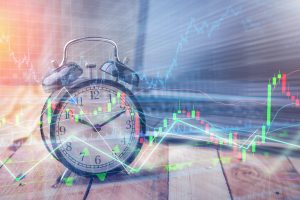
You’re about to embark on an enlightening journey into the world of trading, where timing is everything. In the guide, “What Are The Best Times To Trade In Different Markets?” you’ll discover invaluable insights into the intricacies of various trading markets. You’ll learn not just how to trade, but when to do it for maximum returns. This comprehensive tool will make trading feel less like a gamble and more like a well-calibrated strategy, by helping you make decisions that are timed to perfection. From stock exchanges to cryptocurrency, this guide has got all your trading queries covered. Get ready to maximize your profits by trading smart!

Understanding Market Hours
Trading in financial markets requires an understanding of market hours, including when markets open and close.
Defining market hours
Market hours refer to the hours during which traders can buy, sell, and trade financial securities. These hours are regulated by financial institutions and vary according to the market and the region.
The importance of market hours
Understanding market hours is vital to ensure successful trading. The opening and closing times of markets significantly impact stock prices, with high volatility often seen at these times. In addition, knowing when markets close lets you plan your trades and manage your risk.
Time zones and market hours
The hour difference between your location and the trading market can profoundly influence when you can trade. Remember, global financial markets operate on different time zones. Hence, it is important to be aware of the time difference to optimize your trading strategy.
Forex Market Trading Times
Forex market is an over-the-counter (OTC) market, meaning it doesn’t have a centralized exchange and operates continuously around the clock.
Understanding the 24/7 Forex market
Forex markets swing into action when financial centers worldwide start trading, running 24 hours a day from Sunday night to Friday night. This makes it possible for traders to react to global news and events in real time.
Optimal times to trade Forex
The best time to trade Forex is during the overlap of trading hours between two major financial centers. These overlaps often lead to high liquidity and potentially lower transaction costs.
Trading during Forex market overlaps
The most significant overlaps occur between the London and New York markets (3 pm to 7 pm GMT) and between the Tokyo and Sydney markets (midnight to 6 am GMT).
Financial centers and Forex trading times
Each major financial center has specific trading hours. For example, the London session operates from 3 am to 12 pm EST, while the New York session is active from 8 am to 5 pm EST.

Stock Market Trading Times
Stock markets have more regulated market hours compared to other markets.
Regular trading hours for major stock exchanges
Major stock exchanges like the New York Stock Exchange (NYSE) and the NASDAQ operate from 9:30 am to 4 pm Eastern Standard Time (EST) from Monday to Friday.
Optimal times to trade in the stock market
The best times to trade stocks are generally the first few hours after the markets open and the last hour before the close. This period is often associated with higher volume and volatility.
Understanding after-hours trading
After-hours trading refers to the trading that occurs outside of regular market hours. Keep in mind that though the after-hours market can provide opportunities, it often brings increased risk due to lower liquidity and higher price uncertainty.
Factors affecting stock market trading times
Major factors include news releases, earnings reports, and major economic events that can cause significant swings in stock prices.

Cryptocurrency Market Trading Times
Cryptocurrency markets are relatively new, decentralized, and operate 24/7.
24/7 nature of the cryptocurrency market
Unlike traditional financial markets, cryptocurrency markets operate around the clock. This constant operation allows for greater accessibility and flexibility for traders.
Best times to trade cryptocurrencies
While these markets operate continuously, historical data suggests that trading volume might spike during typical business hours in the Asia-Pacific region and the U.S. East Coast.
Factors influencing crypto trading times
News events, technological changes, and broader investor sentiment play significant roles in determining optimal trading times in the crypto market.
Crypto market volatility and trading times
Volatility is a significant factor in cryptocurrency markets. Though it presents opportunities for high returns, it comes with higher risk.

Commodity Market Trading Times
Commodities markets do have set trading times, but they vary based on the commodity and exchange.
Standard trading times for commodities
Each commodity market has a specific set of trading hours. For example, crude oil is traded on the NYMEX from 9 am to 2:30 pm EST.
Commodity market hours across different regions
Every region has different peak times for commodity trading — typically when major exchanges like the London Metal Exchange or the Chicago Mercantile Exchange are operating.
Best times to trade specific commodities
The ideal time to trade a commodity often coincides with the major market hours in the countries that consume or produce that commodity the most.
Impact of market news on commodity trading times
Major economic events and news can affect commodity prices, increasing volatility and possibly creating trading opportunities.
Bond Market Trading Times
Bonds are traded in an over-the-counter market, much like forex. However, the majority of trading takes place during regular business hours.
Understanding the bond market hours
Bond markets typically operate from 8:00 am to 5:00 pm local time. But the hours can vary based on the type of bond and the region.
Optimal times to trade bonds
The best time to trade bonds is usually when there’s high liquidity in the market, often at the market open and close.
Impact of economic indicators on bond trading times
Economic indicators like inflation reports, employment figures, and central bank announcements can greatly affect bond prices and trading times.
Bond trading times in different regions
Just like with other markets, bond market hours can vary based on time zones and regional factors.

Futures Market Trading Times
Futures markets typically have formal trading hours, but electronic trading platforms have extended these hours.
Standard trading times for futures
Futures markets have specific trading hours set by the exchange. For instance, Chicago Mercantile Exchange’s trading hours for most products are from 6:00 pm to 5:00 pm (next day) EST, with a pause in trading from 4:15 pm to 4:30 pm EST.
Optimal times to trade futures
High volume and volatility are often seen at the market open and close, providing potentially profitable trading opportunities.
Understanding pre-market and after-market futures trading
Pre-market and after-market futures trading refer to trading that occurs before and after the standard market hours. Just like after-hour stock trading, these periods come with less liquidity and higher price uncertainty.
Futures market overlaps and trading times
Trading during overlaps of futures markets can provide higher liquidity. The overlap between European and U.S. markets (8:30 am to 11:30 am EST) is seen as advantageous.
Day Trading versus Swing Trading
Day trading and swing trading are approaches that utilize different trading times.
Definition of day trading and swing trading
Day trading involves buying and selling securities within a single trading day, whereas swing traders hold their positions for a few days to weeks.
Best trading times for day traders
Day traders often seize opportunities during high volatility periods, typically within the first few hours after the markets open and the last hour before the markets close.
Best trading times for swing traders
Swing traders may not be restricted to specific trading hours, instead opting for times when the market is more likely to move in their desired direction, often influenced by upcoming events or news.
Comparing trading times between day and swing trading
Day trading generally requires constant attention during market hours, while swing trading can be less time-sensitive.
Factors Affecting Best Trading Times
While specific hours can provide good trading opportunities, several factors can greatly affect the best trading times.
Impact of market volatility
Market volatility can produce wider price swings and can often lead to trading opportunities.
Influence of market news and economic reports
Breaking news, economic reports, and corporate earnings can greatly alter market conditions and create potential trading opportunities or pitfalls.
Role of trading volume and liquidity
High trading volume tends to offer more liquidity which reduces transaction costs and improves price efficiency.
Effect of market overlaps
Overlaps between two active markets can create higher volumes and potential for increased volatility, offering trading opportunities.
Strategies to Determine Optimal Trading Times
Here are some strategies to help identify the best trading times.
Using market hours tools
Many online trading platforms provide tools that help track market hours and highlight overlapping periods.
Analyzing historical market performance
Looking at how particular markets have performed at different times can give insights into optimal trading times.
Considering personal trading habits and lifestyle
Trading successfully also hinges on finding times that work best with your daily routines and work habits.
Tracking key market events and news
Staying apprised of significant economic events and news can help forecast market movements.
In conclusion, the best trading times depend on several factors — the type of market, your trading strategy, and on-going economic events. It’s crucial to understand the dynamics of different markets to make the most of your trading opportunities and, importantly, to manage risk effectively.



